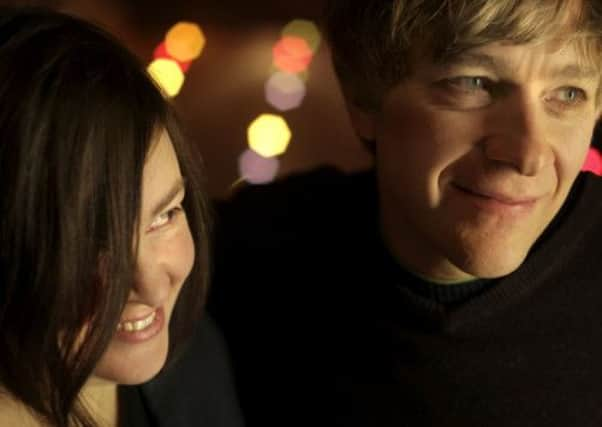Pastels making anxious return to Glasgow spotlight


There has been other notable activity across those years. The group penned the soundtrack to David Mackenzie’s 2003 film The Last Great Wilderness, wrote music for a production by theatre company 12 Stars and collaborated on an album with Japanese duo Tenniscoats. McRobbie continues to run their record label Geographic Music, along with his chief Pastels partner Katrina Mitchell, and is one of the founding partners of the independent record shop Monorail, meaning that The Pastels never feel too remote. But even Kate Bush might wonder at the time it has taken the group to follow up Illumination with the forthcoming Slow Summits.
You get something of a picture of The Pastels’ work ethic when Mitchell, rather tellingly, says that the piecing together the album “became a really nice thing to be working on, to have in the background of our life”.
Advertisement
Hide Ad“Things became very slow-motiony for us,” says McRobbie. “But it doesn’t feel that long. It feels more like 16 months than 16 years.”
By this reckoning, The Pastels have been going for all of 30 months. “I always forget how long ago we started and feel slightly amazed when I think about it,” he says.
There are some, but not many bands of their vintage who continue to thrive at a fiercely independent level. McRobbie mentions The Fall, who are like the Woody Allens of music, churning out idiosyncratic releases to suit their own agenda. “I can’t imagine the level of anxiety of releasing a record every year. This has been such an anxious period, there’s a sense of losing control, your music becoming available. It’s too much at once. I think someone like Mark E Smith is probably better at letting go than we are. I like to feel anonymous a lot of the time.”
It’s quite amusing to imagine The Pastels’ consternation that people might actually hear and have an opinion on their music, but that anxiety is partly to do with the time lag between releases and changes in the marketing and consumption of music. “When Mobile Safari came out in 1995, we had our own poster campaign which consisted of sticking eight posters up in Glasgow,” recalls McRobbie. “Laurence [Bell, the bossman of Domino Records] did the press and contacted a couple of people at NME. We thought we had a powerful campaign going! Now everyone’s upped their game and are better at marketing and getting the word out. Information gets disseminated so speedily. It’s not hierarchical and much less controlled, but I think you have to be more discerning than ever. It’s like you’re always looking for a second, third or fourth opinion.”
McRobbie identifies three phases of The Pastels – the chaotic five-piece line-up of the 1980s, the pared-down trio of the 90s, including Mitchell for the first time, and now the softer but fuller sound created by a live band which includes guitarists John Hogarty and Gerry Love, keyboard/flute player Tom Crossley and Katrina’s sister Alison on trumpet – with each change in line-up determining the group’s direction, or lack of it.
“When we started we were all fighting to be heard,” says McRobbie. “I was the worst musician in the group but I still wanted to be the loudest. I could not stand anyone getting in my way, I was trying to turn it up all the time. The others didn’t pay much attention to anything I did, so it was quite a cacophony, especially in the rehearsal room. We were quite rudimentary and we just wanted to be the opposite of everything so it probably made us seem more brutal and basic than we were because we didn’t feel anything in common with the Glasgow scene at the time.”
Advertisement
Hide AdTurned off by the slick soul sounds of their mid-80s peers, The Pastels formed their own alternative scene around kindred spirits such as Primal Scream, The BMX Bandits and The Soup Dragons.
“My memory of the 80s is of a much bitchier, slightly nasty, competitive music scene – but maybe that was me! Now I think it seems quite co-operative and helpful. People like Craig Tannock [owner of venues Mono, Stereo and The 78] and labels like Chemikal Underground, Rock Action and Optimo have made a solid base for different things to happen. But we were starting in the 1980s so although something like Postcard Records and Orange Juice was really exciting, they hadn’t really put down roots – they were there and then they were gone. It was very much the trend in Glasgow that if a group was ambitious or in any way good they would move to London. No one seemed to stay long enough to get noticed. But we stayed, Teenage Fanclub stayed, and The Vaselines, so the idea of moving to London was probably very strange for the next generation of groups like Mogwai or The Delgados.”
Advertisement
Hide AdThe Pastels may not have enjoyed the success of peers such as Primal Scream and Teenage Fanclub but their benign influence is not to be underestimated. It is a measure of their distinctive DIY aesthetic that they appear to exist in their own hermetic world when, in fact, there is a great leap between the garagey clamour of early singles such as Truck Train Tractor and the elegant, wistful orchestration of Slow Summits.
“The motivation now is to do something that we feel proud of,” says McRobbie. “As I get older, I’ve become more reflective. When you’re writing songs aged 23, 24, everything’s first-hand, it’s how you’re experiencing the song. Then I think it becomes more melancholic. That’s what I find anyway. But I think it can become too melancholic. There was always something a bit trash about The Pastels.”
• Slow Summits is released by Domino Records on 27 May. The Pastels play CCA, Glasgow on 1 June